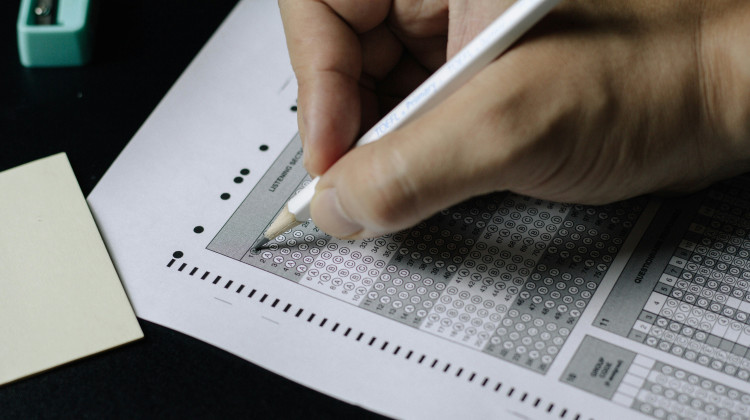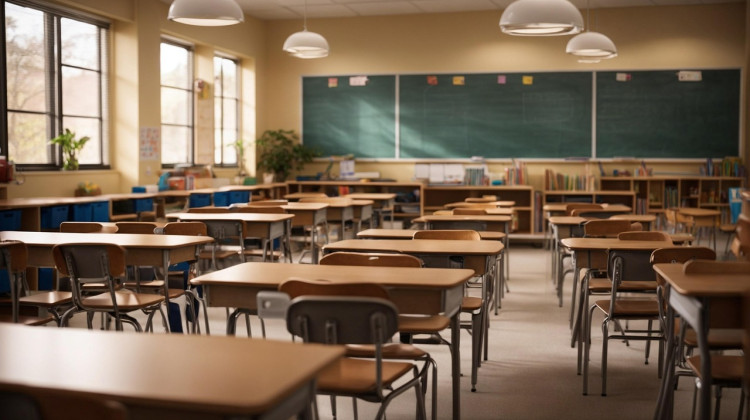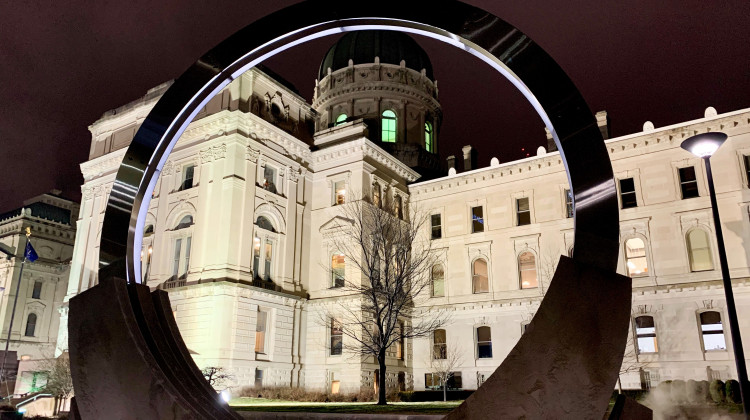Updated 11:45 a.m., April 13, 2023
A contentious proposal to strip school employees and public librarians of a legal defense against charges they distributed harmful materials to children has stalled. But it’s possible the language could resurface.
The House Education Committee did not vote on a controversial amendment to Senate Bill 380, meaning the legislation moved forward without language that would have removed a legal defense for school and library employees, and mandated schools and public libraries adopt a procedure that allows parents and other residents to submit complaints about books they consider objectionable.
SB 380 — which requires school corporations publish graduate rates and allows districts to adopt policies about dress codes and distracting behavior — was approved by the House without the amendment on Thursday.
The authors of the bill, Sen. Jeff Raatz and Sen. Stacey Donato, could now take the measure to conference committee for additional changes.
In conference committee, lawmakers could add in language targeting school and public libraries, but any changes made to the bill must be approved by both the House and Senate.
The language could also be added to a different bill during conference committee, which would also require approval by both chambers. Lawmakers have until the end of session to make changes to legislation.
The development comes about a week after an hours-long House Education Committee hearing that featured passionate testimony from librarians and others who feared the legislation could criminalize librarians and school employees, and limit the types of books and other materials available in schools and public libraries.
The amendment to SB 380 would have required schools to adopt and publicly post a procedure that would allow district residents, parents and guardians to submit a request for removal of material that is classified as obscene or harmful to minors as defined by existing state law, as well as an appeals process. And it would have required public libraries to adopt a procedure allowing community members to submit a request to relocate harmful material to a section of the library not designated for minors.
Additionally, under the amendment, if a prosecutor charged a school or public library employee with disseminating material that is harmful to minors, the employees would be unable to defend themselves on the basis that the material had educational value.
The amendment — and similar legislation passed in the Senate — was driven by concerns among some parents that pornography is rampant in schools, but lawmakers have presented little evidence to suggest it's a widespread problem.
The Indiana Library Federation issued a statement saying they were “pleased that this bill advanced without language criminalizing librarians for having certain books in library spaces.”
The ILF also said they support the inclusion of the community in the development of library collections, and that they “look forward to working with legislators to find a solution that provides opportunities for the community to voice concerns whenever they arise.”
Contact WFYI education reporter Lee V. Gaines at lgaines@wfyi.org. Follow on Twitter: @LeeVGaines.
 DONATE
DONATE







 Support WFYI. We can't do it without you.
Support WFYI. We can't do it without you.